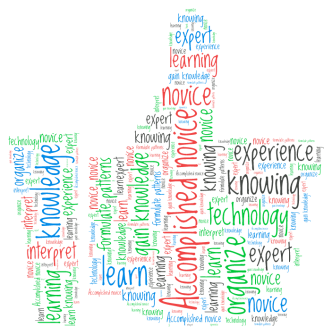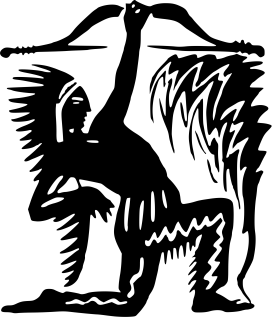Learning is when one gains knowledge either by being taught, through experience or studying the information. But the question is, how do people learn? Throughout the century, what one needs to know to be successful has evolved. As stated in How People Learn, “the meaning of ‘knowing’ has shifted from being able to remember and repeat information to being able to find and use it” (Bransford, Brown, Cocking 2000). In today’s teaching, it is important to teach students not only the content knowledge, but also how to apply it in new situations. Students must learn to find patterns on their own to be able to use the skills they have obtained through their initial learning.
Finding those patterns is the defining factor between a novice and an expert. An expert has acquired knowledge that has an affect on how they look at different topics of information. They will alter how they represent, organize and interpret information gained from their surrounding environment. This ability allows them to apply what they learn to other situations and formulate patterns (2000). Whereas a novice simply knows content. They have not yet gained the tools to be able to retrieve the content knowledge that is relevant to a new, particular task.
In my 5th grade language arts and social studies integrated class, we studied Native Americans and their regions. We stressed to students how “where you live affects how you live.” Once we studied the different regions, it became evident which students became experts and which students were still novices through one activity. I asked students to compare and contrast two or more of the regions. They didn’t have to memorize anything, but they had to apply their gained knowledge to write an essay.
The experts were able to realize how the southern locations were warmer than the northern ones because of their prior knowledge of where you live affects how you live. They could also understand how the growing season differed by the weather patterns and the types of homes Native Americans had to build to withstand the climate. The experts could write the essay with ease because they simply thought about how the regions could have similarities and differences based on where they are located.
This is an example of how education and knowing has evolved. When I was in 5th grade, I had to memorize this information to take a fact-based test. I was only a novice. My students had to use what they learned to do a task that had them apply their knowledge in a new format with the intent of becoming an expert. Memorizing and regurgitating information is not essential anymore; what is essential is taking the basic knowledge and using it for other tasks or activities.
The concept of experts and novices does not only apply to schools, kids or curriculum. Everyone is always a learner in one way or another. Similarly to becoming experts when we learn new information, we must formulate situated meanings for words (Gee 2013). “If a person can associate images, actions, experiences, goals, or interactive dialogue with words, that person has situated meanings for those words. If a person can only associate other words (definitions, paraphrases) with words, then that person has only verbal meanings for those words, not situated meanings” (2013). Situated meanings are just like experts. An expert can use a situated meaning to apply and associate the concept with other concepts and ideas. Without gaining the ability to fluidly create patterns and becoming experts, we cannot be effective learners and establish situated meanings.
In the teaching with technology world, it is important to identify how technology can aide our teachings instead of hinder it. Teachers have to constantly ask themselves if a specific tool can allow their students to become an expert or will it only help initial knowledge. In a school where technology is a focus and the possibilities are endless, I have to carefully reflect on what will most benefit my students. Through my MAET career, I will be able to become more of an expert on what tools can fluently aide my teaching.
Bransford, J., Brown, A.L. & Cocking, R. R. (Eds.), How people learn: Brain, mind, experience and school. Washington, D.C.: National Academy Press.
Gee, J. P. (2013). Digital Media and Learning: A Prospective Retrospective. Arizona State University. Retrieved from http://jamespaulgee.com/geeimg/pdfs/Digital%20Media%20and%20Learning.pdf

